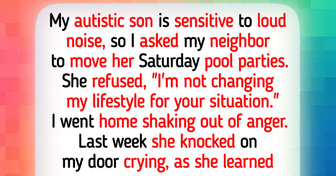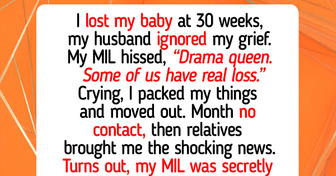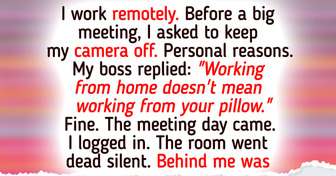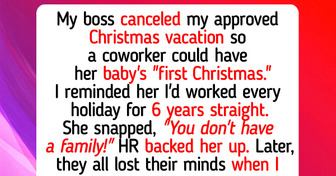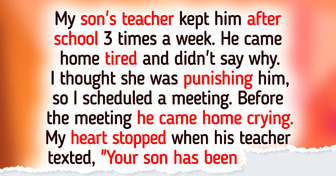10+ Things That Might Save Your Life Someday

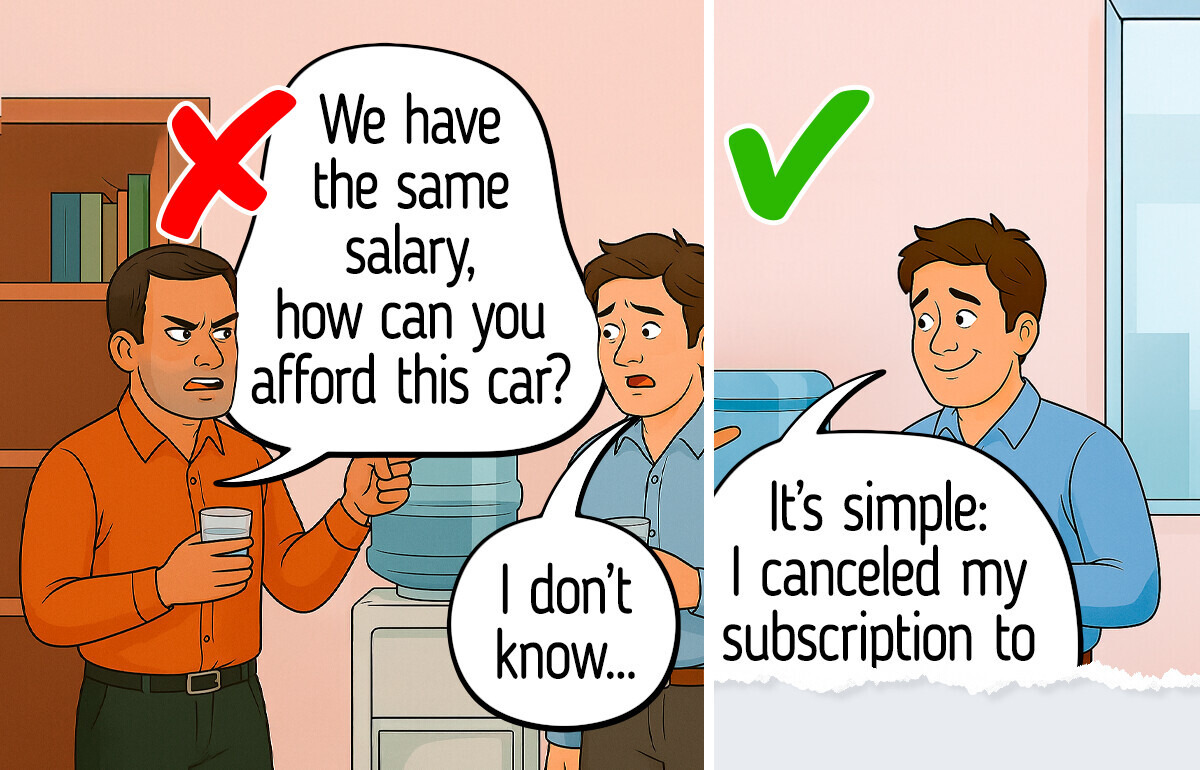
In the glittering chaos of office life, boundaries can easily blur. That one coworker who always overshares. The manager who thinks 6 p.m. is the perfect time for a “quick chat.” The teammate who mysteriously disappears when deadlines hit. Navigating workplace dynamics isn’t just about emails and meetings; it’s about knowing when to say no with grace and how to say it with power.
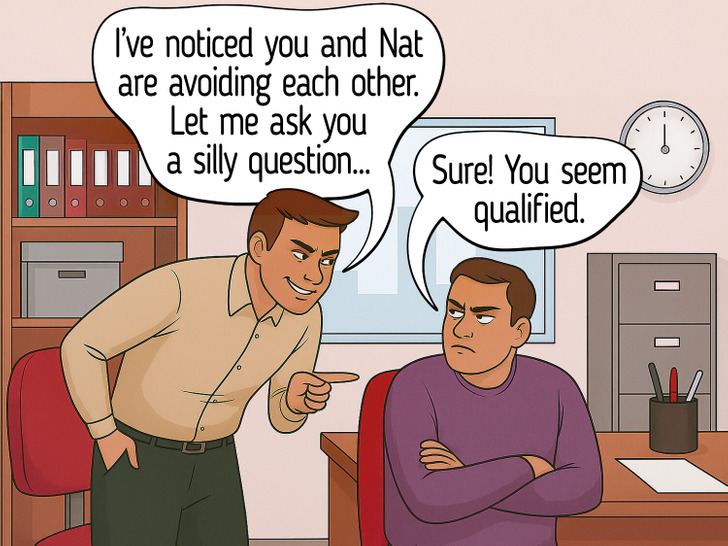
Work is where we come to share files, not feelings. But somehow, there’s always that one coworker who thinks asking, “So, when are you and Tom getting married?” as a fun little icebreaker. And once you open that door, even slightly, people will kick it open with muddy shoes, track gossip across your boundaries, and casually leave your dignity behind in the breakroom group chat. They don’t want the full story, they just want material.
The truth is, giving coworkers access to your personal life is like handing out VIP passes to your emotional rollercoaster, only they didn’t sign the waiver, and you didn’t ask them to scream about it in HR. People love a juicy tale but rarely handle it with care. One breakup and suddenly you’re the main character in someone else’s lunch break drama. So next time someone fishes for your love life like it’s open season, remember: mystery isn’t rude, it’s powerful.
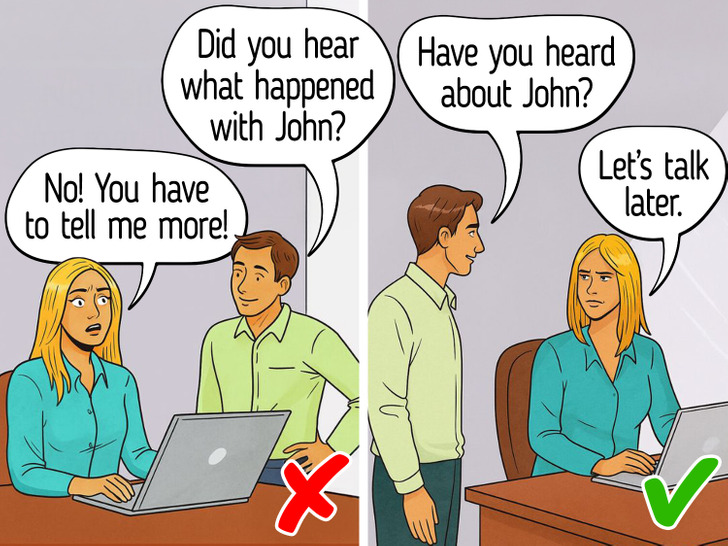
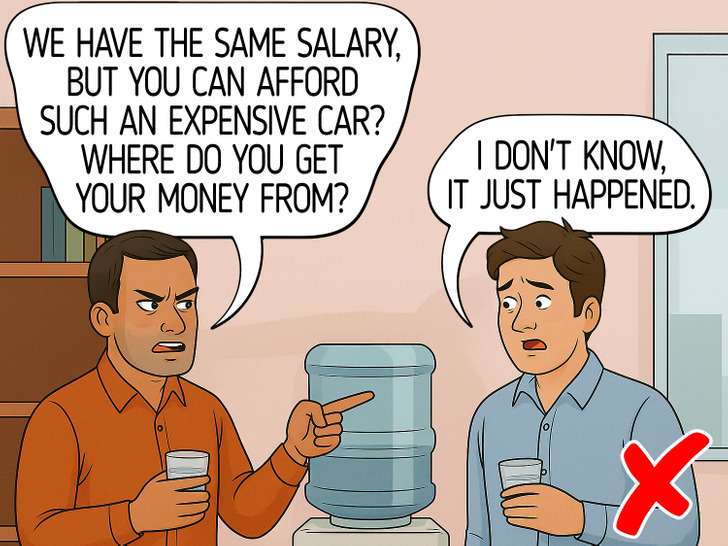
If there’s one thing more mysterious than what Karen in accounting actually does all day, it’s your paycheck, and that’s exactly how it should stay. Yet somehow, someone always leans over and asks, “So how much did that bag/vacation cost?” or “Wait, we have the same salary, how can you afford that car?” as if you’re about to hand them a printed spreadsheet of your monthly expenses. Money talk at work is like microwaving fish in the breakroom—technically possible, but no one really wants to deal with the aftermath.
Finances are personal, and your lifestyle choices don’t require a group consensus. Maybe you save. Maybe you splurge. Maybe your aunt left you a small island, who knows!
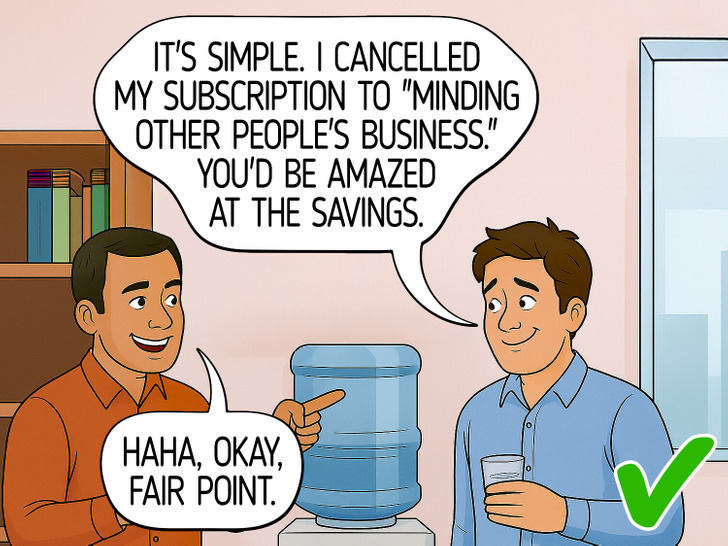

There’s a special kind of magic in showing up to work and being told, “You look tired,” as if that’s ever helped anyone feel less tired. Right behind it are hits like, “Have you gained weight?” In a world where everyone’s juggling ten things at once, commenting on someone’s body, outfit, or energy level is less helpful and more like a surprise performance review, only unsolicited, and without snacks.
Here’s the golden rule: unless someone asks you to weigh in (pun very much intended), keep health and appearance off the office agenda. Our bodies, moods, and outfit choices aren’t open tabs for coworker critique.
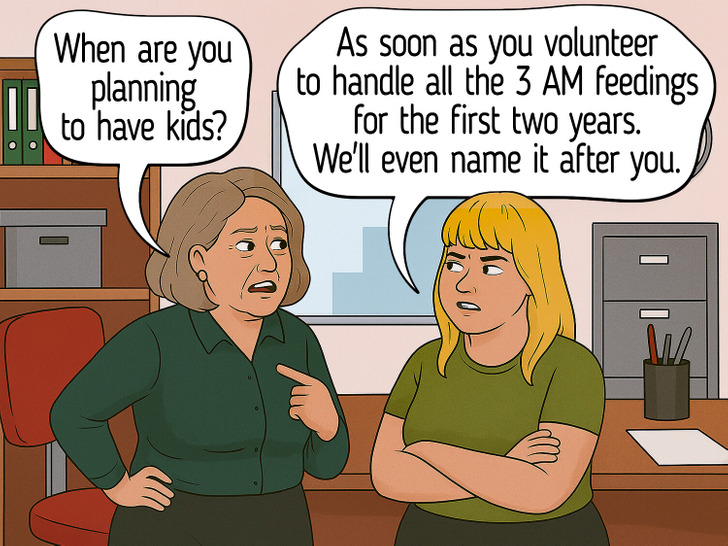
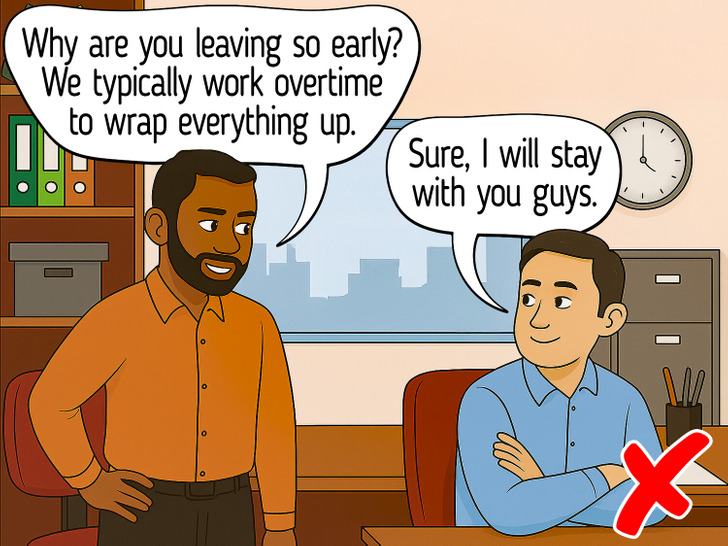
Work conversations should be like a well-tailored blazer: structured, respectful, and never too tight. But every so often, someone tosses you a loaded question like, “What’s the worst thing about working here?” as if you’re on a reality show called Corporate Confessions: Sabotage Edition. These aren’t casual chats, they’re conversational trapdoors disguised as curiosity. And let’s not forget the classic, “What do you really think of [insert manager’s name]?” which is basically HR roulette with a side of drama.
Here’s the truth: professional boundaries are just as important as personal ones, especially when “innocent questions” come with hidden agendas. You don’t have to justify your workload, your wins, or your silence.
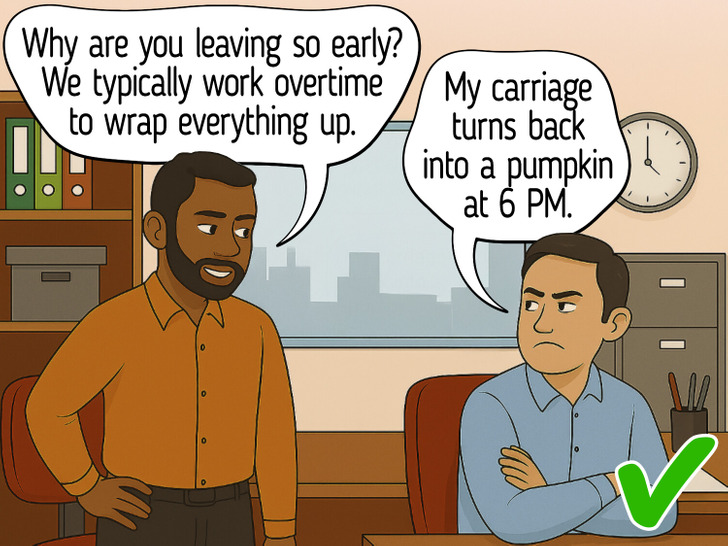
If you enjoyed this article, you’ll love, “14 Work Stories So Wild They Could Be a Netflix Series”: On my 1st day, my supervisor, Emma, handed me a massive folder and said, “Sort this alphabetically by day’s end.” I worked frantically to impress. Hours later, the manager asked what I was doing. When I explained, his face went pale. He said, "Don’t you know... Click here to read the whole story.


